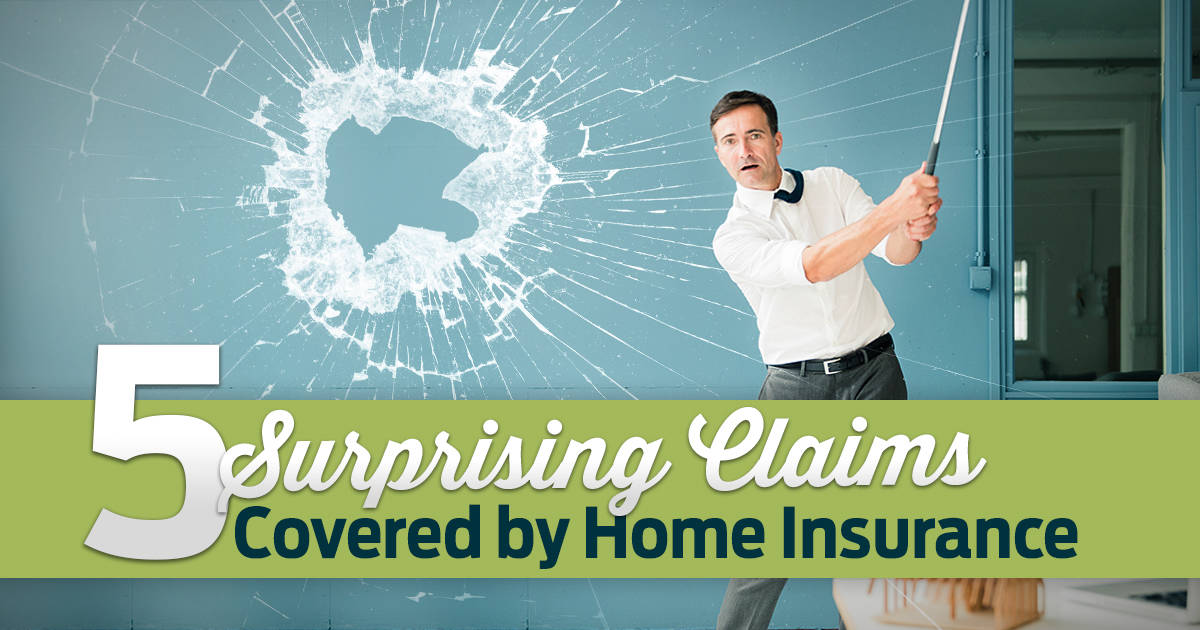
Can Your Home Insurance Policy Be Cancelled?
January 14, 2024
Share:
Homeowners purchase home insurance to protect their family’s biggest asset: their home. In addition to protecting the physical dwelling of where you live, home insurance also protects the contents within your house and your personal liability. For many homeowners, it’s a protective layer for their peace of mind. However, there are some instances where your home insurance company could cancel your policy. Sometimes, you may decide yourself that you aren’t satisfied with your coverage or that your rates are too high, and you opt to cancel – but your home insurance provider can make that same decision. In most cases, having your home insurer cancel you is not a good sign.
Being cancelled – whether it’s your home insurance policy or any other insurance policy you have – can leave a “stain” on your insurance history, and you’ll have to notify every other insurance provider when you apply for insurance that you’ve been cancelled before. This may make it difficult for you to get insured at all, or you’ll find yourself faced with higher-than-normal rates.
Why does a cancellation happen? What can make a home insurance provider decide to cancel you? Read on for some of the reasons that your insurer might cancel your policy.
You aren’t making payments.
Not making payments is the most common reason for being cancelled. One missing payment may not be a big deal – especially as you can make it up later down the line with a simple phone call – but missing several payments in a row can be grounds for cancellation. To avoid this, if you think you may not be able to make a payment or that your account does not have enough funds to pay your monthly premiums, call your insurance broker. You may be able to arrange a payment time that aligns with when you are paid so that you can be sure to avoid a non-payment.
Your insurer stops serving the region where you live.
Fortunately, this is one of the reasons for cancelling your policy that will not impact your insurance history as it has nothing to do with your behaviour. Insurance companies can, at any point, cancel you because they stopped serving the area where you live. They may also stop serving a certain line of business. Generally, this will come in the form of a non-renewal notice and will inform customers that they need to go elsewhere to get insured. This can be troublesome for the customer to have to go through the work of getting insured again, but it isn’t the worst cause for being cancelled.
Misrepresentation and fraud.
One of the worst reasons for being cancelled is if you lie on your application for insurance to reduce your overall premiums or costs. If you are asked a direct question and lie, this is also cause for cancellation. Misrepresentation can also be in the form of lying about the usage of your primary dwelling – such as if you rent out your property and are not permanently occupying the space yourself. Providers can void policies from the beginning, meaning that you can get all your premiums back, but your claims will not be paid. Any significant damages or losses will not be covered.
You switched providers and didn’t tell your existing provider.
If you have decided to switch providers, you should let your existing one know as soon as you possibly can, ideally, before your current policy auto-renews. You are still under a contract with your existing provider and should not simply let your policy void itself due to non-payment. This is because this will still leave a “mark” on your insurance history, even if there was no lapse in coverage.
You didn’t use your claim money to repair the damage.
This situation may also fall under “fraud” – i.e, where you receive a settlement for a submitted and approved claim and do not put that money towards repairs or use it for something unrelated. With many providers, you will need to provide photo evidence or other proof that the repairs have been completed to your liking. In the event your insurer finds out you have used your money for something else, you may be cancelled.
You’ve made too many claims.
When your risk is too high, that may be grounds for cancellation. Making too many home insurance claims can significantly increase your risk, especially because past behaviour is generally a good reflection of future behaviour. If your risk has changed – such as if you refuse to modernize your home’s electrical systems per your home insurer’s recommendations – they may cancel you. In addition, if you have made too many claims in recent history, they may decide that you are too risky to insure, and your policy will be voided. It’s advisable to read your “conditions” section of your insurance to see what grounds for cancellation could be, as well as how much notice they must provide you beforehand.
If you believe that you have been cancelled for unjustified reasons, you can always ask to dispute the decision and discuss it with management. In some circumstances, this can reinstate your policy – but if you were cancelled for any of the reasons above, your chances might not be as high as you’d think. All in all, it’s best to avoid a cancellation in the first place. You don’t want that mark on your insurance history, and going through a period without insurance can be strenuous and stressful. If you continue to make your payments on time, are honest and transparent, submit only necessary claims, and put the settlement money towards your repairs, you should be alright.






